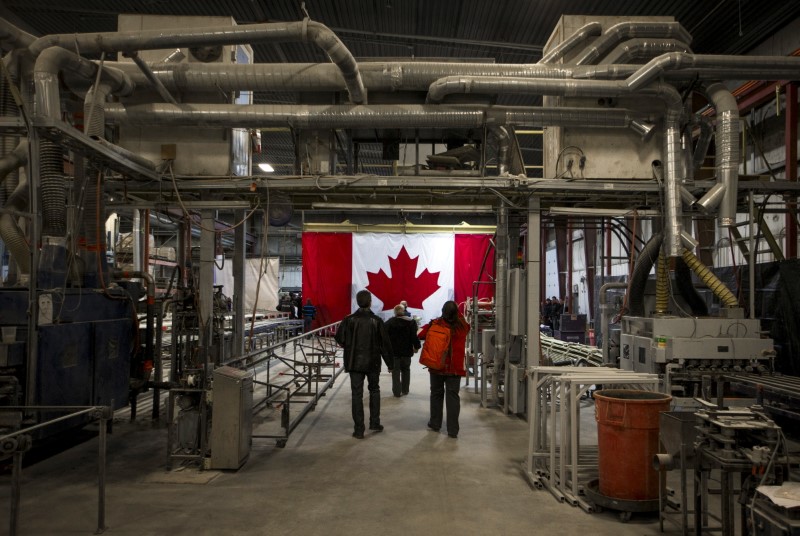Commerce launches BigCommerce Payments powered by PayPal for 2026
Investing.com - Canada’s main stock exchange ended higher Friday, after Federal Reserve Chair Jerome Powell signaled that the U.S. central bank was open to cutting interest rates during his highly anticipated speech the Jackson Hole Symposium.
Toronto Stock Exchange’s S&P/TSX Composite index jumped 1%, gaining 277 points at 28,333.13.
Index closed Thursday 0.6%, or 176 points, higher at 28,055.43.
Powell was speaking at the Jackson Hole Symposium in Wyoming, and indicated that the U.S. economy was on sufficiently shaky ground that the central bank may soon need to cut interest rates.
“Downside risks to employment are rising,” Powell said in prepared remarks for his keynote speech at the annual symposium, while the possibility of Trump administration’s tariffs having only a short-lived effect on inflation is “reasonable.”
“With policy in restrictive territory, the baseline outlook and the shifting balance of risks may warrant adjusting our policy stance,” he added.
His address came amid increasing doubts over whether the Fed has enough impetus to cut rates in September, however the market now appears to be pricing in two more rate cuts by the year end.
"This is about as explicit a ’we’ll probably cut in September’-type statement as one can expect from the Fed chair," said analysts at Vital Knowledge, in a note.
"However, while Powell is more dovish than when he last spoke in July, this is hardly an extremely dovish speech on an absolute basis. He is still nervous about inflation and warns that tariffs could generate more persistent rise in prices. In addition, while job creation is cooling, job market slack is NOT due to a drop in labor supply (as a result, the break-even number for the U.S. economy has moved lower)."
Carney speaks with Trump
Canadian Prime Minister Mark Carney spoke with U.S. President Donald Trump on Thursday and had "a productive and wide-ranging conversation" on trade challenges and other issues, Carney’s office said in a statement.
The phone call, which comes at a time when Canada and the United States are locked in a trade war, was the first known conversation between the two leaders since June 30.
In late July, Trump signed an executive order increasing tariffs on Canadian goods to 35% from 25% on all products not covered by the U.S.-Mexico-Canada trade agreement. The White House cited what it said was Canada’s failure to stop fentanyl smuggling and address U.S. concerns about trade barriers.
Crude set for winning week
Oil prices gained strength Friday, on track to snap a two-week losing streak amid increasing signs that peace negotiations between Russia and Ukraine were stalling.
At 10.35 ET, Brent futures was up 0.4% to $67.94 a barrel, and U.S. West Texas Intermediate crude futures was up 0.6% to $63.88 a barrel.
Both contracts climbed more than 1% in the prior session. Brent has risen almost 3% this week, while the WTI has gained around 1.4%.
The three-and-a-half-year war in Ukraine continued unabated on Thursday, and traders are pricing in more risk that the supply of Russian crude to the global market remains disrupted.
Gold prices gained though it has been under pressure from a stronger dollar.
Spot gold was up 1.03% to $3,372.91 an ounce, while gold futures was up 1.09% to $3,418.42/oz.
Gold was supported by some safe haven demand remaining in play amid increasing signs that a Russia-Ukraine peace treaty will not be reached anytime soon.
